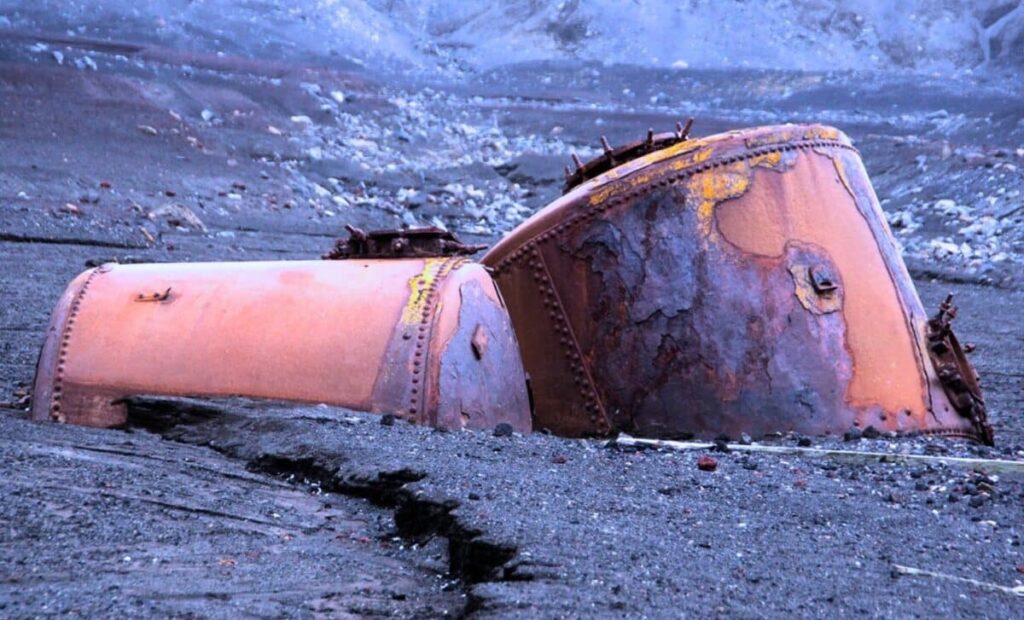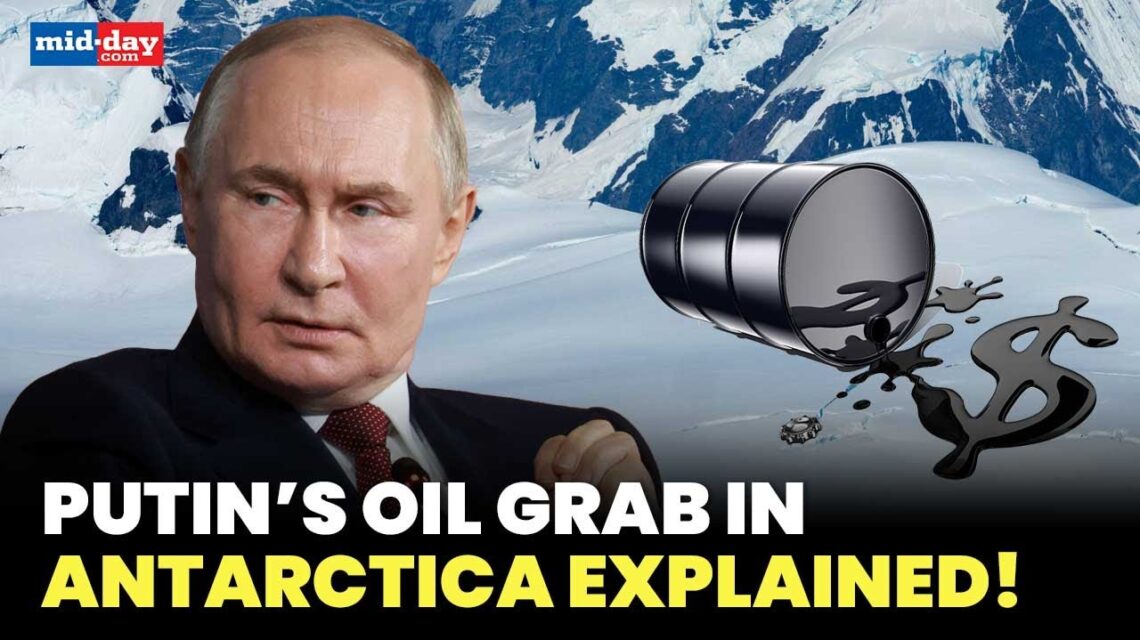Table of Contents
Introduction to the Oil Discovery in Antarctica
This time Russia is in the news not on political and sport grounds. A mind-boggling reservoir of oil of 511 billion barrels is found below the cold blanket of Antarctica. The discovery has been jolted to the international energy market and a spark in the realization of environmental conservation and international relationships. The world is becoming tense as nations jostle to know what this historic reserve means to them. What will that imply on our planet and its future? Here is where we jump into the complex world of Russia, never forgetting the spectacular oil discovery in one of the very last unexplored frontiers of the planet.
The Potential Impact on Global Oil Market
The new found oil in Antarctica containing 511 billion barrels of oil can completely transform the world oil market. This huge reserve can cause an over supply which will make the prices to be forced lower and affect economies that are based on high oil revenues.
Those nations that depend on fossil fuel may experience financial problems in case this new source upsets the local market. Countries such as Saudi Arabia and Venezuela which are already experiencing a choppy prices may get squeezed more.
At the same time, emerging competitors might show up. Those countries keen on acquiring these resources will increase the search. The change may change alliance both in and out of OPEC having unfair surprises.
This announcement is causing ripples in stock markets around the worldaryl Investors are too monitoring its effect closely. Energy firms can also shift gears due to expected shifts in demand pattern and rates because of the landmark discovery in Russia.
The Race for Resources: Tensions and Competitions between Countries

The fact that large reserves of oil have been discovered in Antarctica has created heated rivalry among countries. Nations today are engaging in a tussle over this untapped resource with the hopes of making their claims.
The big competitors such as the United States, China, and Australia are showing a lot of interest in these prospective riches. Every country is evaluating its plans in ensuring that it gets access before others meddle with it. International negotiation has become intense as friends become enemies and enemies become friends.
Crises escalate both due to economic interests as well as national pride. Resource domination tends to confuse competition and collaboration. Countries can choose to place their interests first before environmental concerns or international agreements.
Each time they announce the latest technological advancements in drilling or demanding new lands, stakes are raised. It is possible that seeking oil might be able to recast international relationships in the new forms we are unaware of. The future is unclear and full of uncertainties as nations deal with this murky waters, and it is full of challenges.
Environmental Concerns and the Future of the Antarctic Region
The newfound enormous deposits of oil in Antarctica provoke severe threats to the environment. It is a virgin now but has some special ecosystems that may be damaged irreparably by drilling.
The fragile life for the penguins to the seals is at stake as nations look with more fervor into these products. There is a practical danger of spills and accidents that can be catastrophic to marine habitats.
Moreover, greater human activity is dangerous not only due to extraction. The effects of climate change are already forcing changes to be made in the Antarctic landscapes and behavior of animals. The additional amount of industry can worsen these problems.
Most researchers claim that including these resources implies going against the global preservation and climate change efforts. The question that the world needs to address is whether it is worth economic benefits in the short-term at the jeopardy of the final frontiers of our planet?
Countries are already competing over the possession of this new wealth and the question as to what becomes of Antarctica at the end of it all is unanswered, a rather grim reminder of how closely linked together the issues of resource management and environmental control are.
Political Implications and Diplomatic Efforts to Claim the Oil Reserves
The fact that oil has been found in Antarctica has jolted the political scene. Countries are today rushing to stake their claims at these huge deposits.
The decision of Russia to claim the territory causes doubts in terms of sovereignty and rights in such an uncontrolled territory. Other nation states, including the U.
The U.S., Canada, and some European countries, can react with their claims.
Foreign affairs will also become hot as both states keep trying to secure their standings. The effects might be keen in allyships depending on the energy requirements and environmental policy.
Multilateral controls of Antarctic resources are questionable in such a way also. The current agreements would have to be redone or strengthened to deal with this increased competition.
The negotiations may be tense when countries have to take into consideration the economic gains and stability in the geopolitics. The consequences include high stakes on national interests and diplomatic ties in the future.
Alternatives to Fossil Fuels: Renewable Energy Sources and Their Role in a Changing World
The world is finding solutions on how to deal with its energy needs and renewable sources are going live. Renewable energy resources have renewable substitutes to fossil power sources such as solar, wind and hydroelectric energy. Such technologies utilize the power of the creations of the earth, and we do not depend so much on the exhausting non-renewable resources.
Solar panels utilize sunlight in the generation of electricity and they are common in both residential and business environments. Windmills harness kinetic energy of the air to obtain power effectively.
Hydroelectric power stations make use of running water to generate power but with low expenditure of carbon footprints. All the approaches are allowing a cleaner environment.
So do new ones such as geothermal and tidal energy. They use the power of heat or movements in the ocean to generate power.
The switch to renewable sources of energy will not only solve the climate crisis but will also present economic prospects in the form of employment in the green technology market.As the societies switch to this transition, it is possible to have the communities thriving in viable solutions using clean energy forms that will serve people and the planet equally.
Conclusion: Balancing Economic Benefits with Ethical Considerations in Resource Extraction
Many factors come to play as the world struggles to deal with the implication of the staggering oil discovery by Russia in Antarctica. The economic gains that the country is going to have once oil is found in the 511 billion barrels prospects are unquestionable. Nations are desperate to have their share because of ambition as well as necessity.
Nevertheless, ethical considerations can not be masked by the race to control the resources. We still have on our planet one of the last unspoiled frontiers which is the Antarctic region. Its exclusive ecosystem is exposed to hazards that might occur as a result of drilling and the consequent congestion of humans.
It is important to balance between tapping these huge reserves and environmental conservation. It demands fair management of resources and a realization that the immediate benefits cannot jeopardize the future conditions-environmentally and politically.
Traversing these waters will take the coordination of nations, open communication with intentions, and new methods of extracting resources. In this multifaceted arena as we move ahead in it, more focus on sustainable patterns of existence may lead to a very bright future where both the interests of the economy and ecological oneness co-exist in wonderful ways.
